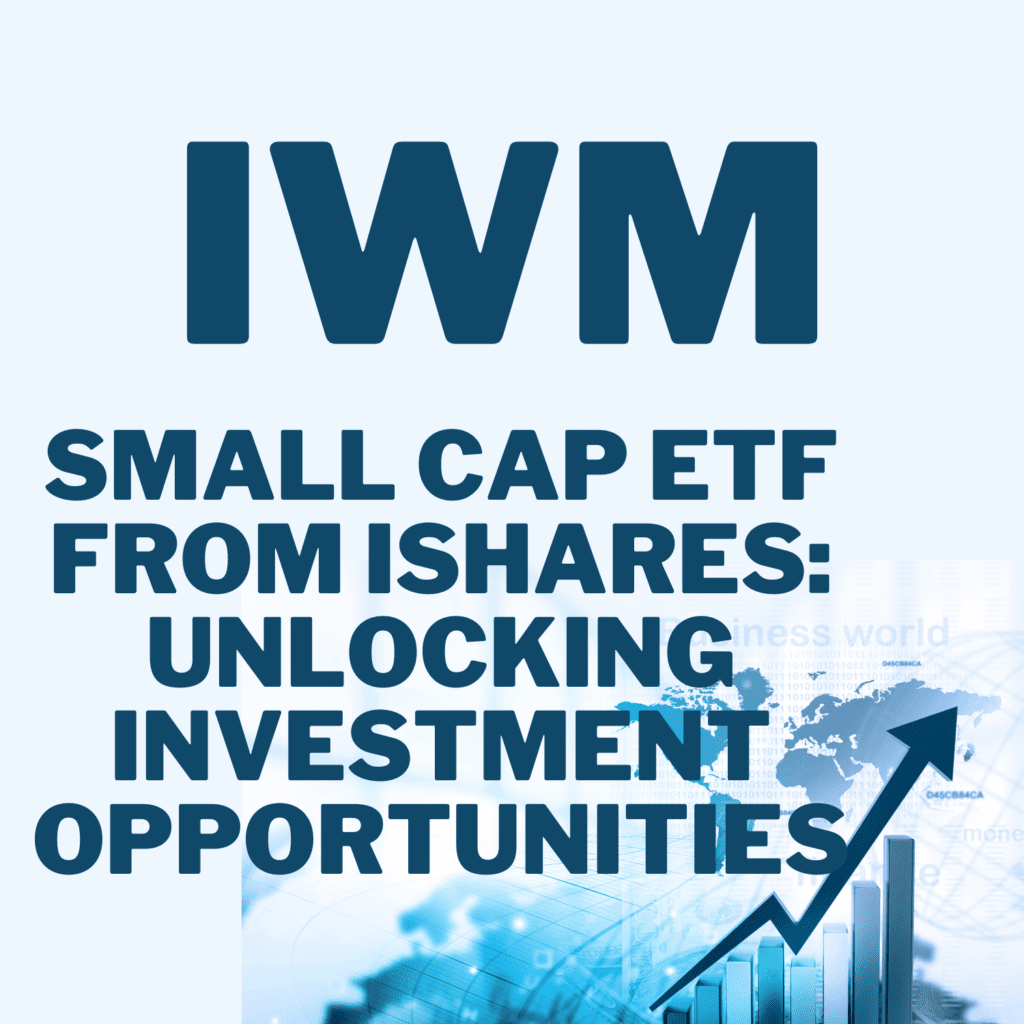Investing in exchange-traded funds (ETFs) has become increasingly popular due to their simplicity and diversification benefits. When it comes to ETFs, investors have various options to choose from. In this article, we will discuss the advantages of investing in small-cap ETFs, particularly focusing on the iShares Russell 2000 ETF (IWM Stock), and what investors can expect when comparing it to large-cap ETFs.
IWM Stock – Investment Objective:
The iShares Russell 2000 ETF seeks to track the investment results of an index composed of small-capitalization U.S. equities. But why should investors consider IWM?
Advantages of Investing in Small Cap ETFs:
Exposure to Small Public U.S. Companies:
One of the primary advantages of investing in small-cap ETFs like IWM is exposure to small public U.S. companies. Small-cap stocks represent companies with a relatively smaller market capitalization compared to their large-cap counterparts. These companies often have significant growth potential and can offer higher returns over the long term. By investing in IWM, investors gain access to this segment of the market that may not be as accessible through individual stock selection.
Access to 2000 Small-Cap Domestic Stocks in a Single Fund:
IWM provides investors with exposure to a diversified portfolio of 2000 small-cap domestic stocks, all within a single fund. Diversification is a key risk management strategy, as it spreads investment risk across various assets. With IWM, investors can benefit from this diversification without the need to individually select and manage a multitude of small-cap stocks. This reduces the risk associated with the potential underperformance of any single company and provides a broader market exposure.
Use to Diversify a U.S. Stock Allocation and Seek Long-Term Growth:
Investors often allocate a portion of their portfolio to U.S. stocks for long-term growth. While large-cap stocks dominate the market, small-cap stocks offer diversification benefits within this allocation. By adding small-cap exposure through ETFs like IWM, investors can diversify their U.S. stock allocation and potentially enhance their portfolio’s overall performance. Small-cap stocks are known for their growth potential, making them a valuable addition for investors seeking long-term capital appreciation.
Expectations from Small Cap ETFs vs. Large Cap ETFs:
Potential for Higher Returns:
Small-cap ETFs like IWM typically offer the potential for higher returns compared to large-cap ETFs. Small-cap stocks often have more room to grow, and when the economy is performing well, they can outperform their larger counterparts. However, it’s essential to note that with the potential for higher returns comes increased volatility, which investors should be prepared for.
Increased Risk:
Investing in small-cap ETFs carries a higher level of risk compared to large-cap ETFs. Small-cap stocks can be more sensitive to economic downturns and market volatility. Investors should have a long-term investment horizon and be prepared for periods of price fluctuations.
[stock_market_widget type=”chart” template=”basic” color=”#5679FF” assets=”IWM” range=”1mo” interval=”1d” axes=”true” cursor=”true” range_selector=”true” display_currency_symbol=”true” api=”yf”]
[stock_market_widget type=”table-quotes” template=”basic” assets=”IWM” fields=”symbol,price,change_pct,52_week_low,52_week_high” links=”{‘IWM’:{}}” display_header=”true” display_chart=”false” display_currency_symbol=”true” pagination=”true” search=”false” rows_per_page=”5″ sort_field=”logo_name_symbol” sort_direction=”asc” alignment=”left” api=”yf”]
Full list of ‘Dividend Kings’ stocks by sector – 2023
IWM Stock: historical performance
[stock_market_widget type=”table-quotes” template=”color-header-border” color=”#5679FF” assets=”IWM” fields=”symbol,ytd_return,three_year_average_return,five_year_average_return” links=”{‘IWM’:{}}” display_header=”true” display_chart=”false” display_currency_symbol=”true” pagination=”true” search=”false” rows_per_page=”5″ sort_field=”logo_name_symbol” sort_direction=”asc” alignment=”left” api=”yf”]
IWM Fees
as of current prospectus
IWM: Portfolio of stocks
| Ticker | Name | Weight (%) |
| SMCI | SUPER MICRO COMPUTER INC | 0.53 |
| GTLS | CHART INDUSTRIES INC | 0.32 |
| MTDR | MATADOR RESOURCES | 0.30 |
| CHX | CHAMPIONX CORP | 0.30 |
| LNW | LIGHT WONDER INC | 0.29 |
| ELF | ELF BEAUTY INC | 0.29 |
| SSD | SIMPSON MANUFACTURING INC | 0.29 |
| SPSC | SPS COMMERCE INC | 0.29 |
| ONTO | ONTO INNOVATION INC | 0.28 |
| MUR | MURPHY OIL CORP | 0.28 |

